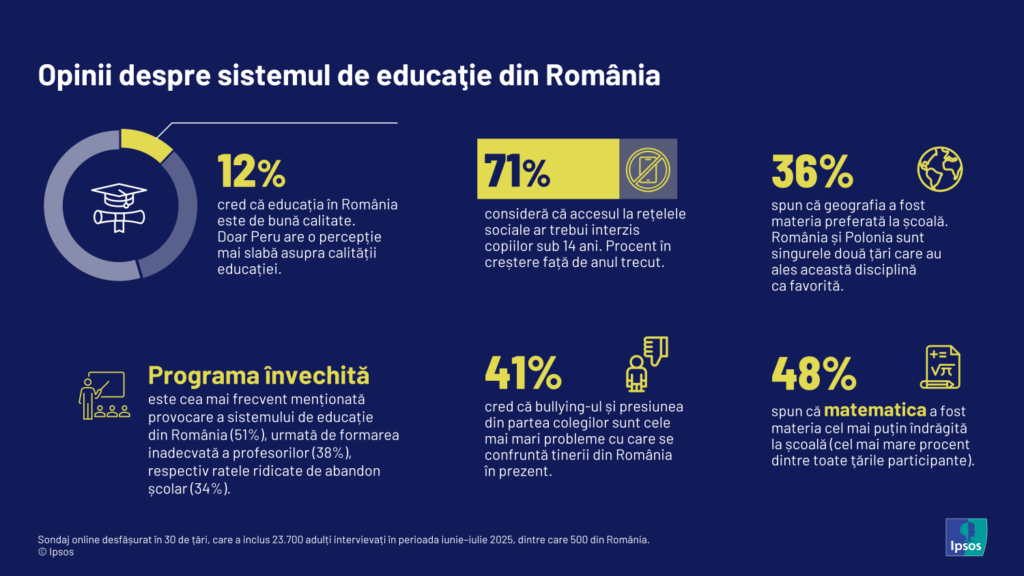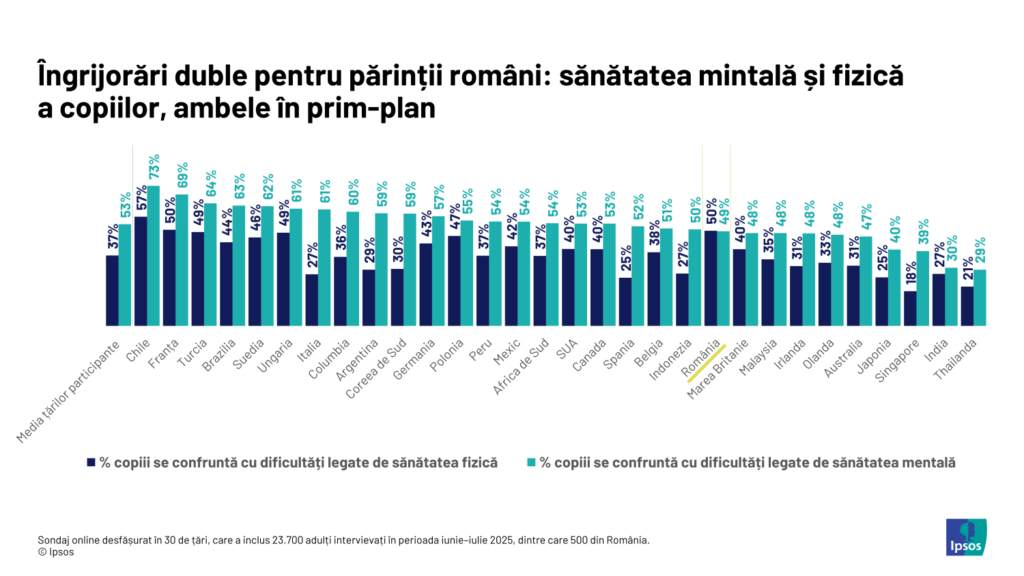Romanians have among the lowest levels of trust in education in the world. Our country ranks second to last globally, surpassing only Peru, in terms of trust in education, according to an international Ipsos study.
Only 12% of Romanians believe that schools are functioning well, while the majority point out the same chronic problems: outdated programs, poorly prepared teachers, and high dropout rates.
Although reforms are a constant topic in the public space, the overall perception has not changed from last year, when only 11% of Romanians rated education as "good." Ipsos notes a stagnation in trust and a leveling off of expectations.
Meanwhile, bullying, anxiety, and social pressure are affecting more and more young people, and parents are calling for restricting children's access to social networks.
Europe, the continent of educational discontent
We are not the only country where the population declares dissatisfaction with the quality of schools. In Hungary, France, and Romania, over half of respondents believe that the educational system urgently needs improvements.
Criticism also prevails in Germany, Spain, Italy, and Belgium. In contrast, Ireland stands out with a positive perspective - 71% of residents say that education is in a good state. In the UK, nearly half of the people share the same opinion.
Chronic issues: outdated programs, unprepared teachers, high dropout rates
Romanian respondents continue to point out the same causes for the poor performance of schools.
- Outdated curriculum is mentioned by 51% of participants - the same percentage as in 2024.
- Inadequate teacher training is reported by 38%, a slight decrease from 45% last year.
- Dropout rates remain a major concern (34%), close to the level of last year.
According to Ipsos, these data show a lack of real progress, despite discussions about reform and modernization.
An emotionally vulnerable generation
Globally, one-third of respondents believe that mental health is the biggest challenge for young people. In Romania, the focus is on bullying and social pressure, indicated by 71% of participants as the main issues.

"The survey speaks not only of an outdated educational system but also of a generation of increasingly emotionally vulnerable young people. The lack of real reforms and insufficiently supported teachers contribute to a loss of trust in education," explains Irina Nicolaescu (Aldesiu), Client Director at Ipsos Romania.
She points out that mental health issues, stress, and anxiety already affect a growing number of students, and schools are not prepared to provide the necessary support.
Digital safety: parents demand stricter rules
Globally, 71% of respondents believe that children under 14 should not have access to social networks. In Romania, support for this measure is increasing, showing a growing concern for children's safety in the online environment.
Romanian parents are becoming increasingly aware of the negative impact of digital pressure and premature exposure to online content, correlating these risks with the fragile emotional state of young people.

In a world where mental health has become a central issue, parents in Romania find themselves in a precarious balance between emotional concerns and those related to academic performance. Ipsos notes a shift in priorities, where academic success matters less than emotional well-being.
This trend reflects, according to experts, the need for a new type of education - one that not only imparts information but also helps children better cope with pressures, emotions, and social difficulties.
The Ipsos Education Monitor 2025 survey was conducted online, between June 20 and July 4, with a sample of 23,700 people from 30 countries, including 500 respondents from Romania.

